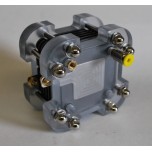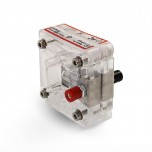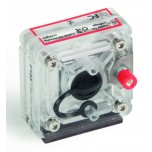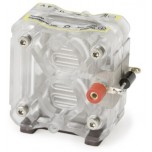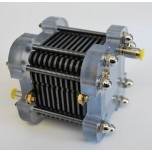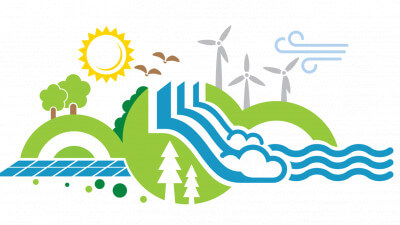 How to Become a Renewable Energy Expert – Recommendations, Classes, and Degrees Based Upon My Experience
How to Become a Renewable Energy Expert – Recommendations, Classes, and Degrees Based Upon My Experience
Many years ago, there was a great guy that used to sit next to me at work. We used to laugh a lot when people called themselves “experts.” When it was really true -- we didn’t laugh; however, it often was not true. Our fast-paced culture breeds this mentality because many individuals think that if they do something once or twice, then they are an expert in that area! Some individuals believe that if you can do one or two reports well or come out of school with a degree -- then they are an expert. Sometimes people believe that these “experts” can produce the same quality work as someone who has been performing a similar type of work for 30 years! With certain kinds of work, this may be applicable, but this is not true in fields such as science and engineering, where knowledge builds upon previous knowledge and experience.
If you are a secondary or high school student, there are two ways that you can obtain experience: (1) a lot of hands-on learning – such as building your own renewable energy systems, and (2) focusing on your math and science classes. There is nothing better than obtaining hands-on experience with mechanical, electrical, and renewable energy projects. The types of courses that will provide the foundation for becoming an energy expert are in Table 1.
| Mathematics | Science |
| Algebra I | Physical Science |
| Algebra II | Chemistry |
| Geometry | Physics |
| Pre-Calculus | Foundations of Programming |
| Calculus | |
| Statistics |
Table 1. Example Secondary Courses
During my undergraduate years, my goal was merely to finish my bachelor’s degree. It was not an easy degree (chemical engineering), and working full time made it even more challenging. I had a good friend that I went to college with, and we both worked graveyard shifts in the medical field. Around exam time, we slept between classes in our cars!
Somehow, we made it through -- and my friend vowed never to go back to school again. I could not blame him.
Even though it was challenging, when I look back, the classes that I took really helped prepare me for the renewable energy field. Many college majors can be considered if you want to work in the energy industry. Some of these include:
• Mechanical Engineering
• Chemical Engineering
• Material Science
• Chemistry
• Physics
• Electrical Engineering
• Mathematics
Depending on the major that you select, the recommended classes will be different. Also, you will work on various renewable energy aspects, components, or systems – depending upon the major that you select. A few examples of the type of work that can be conducted with each of these majors are:
• Mechanical Engineering: Fuel cell stack design, reformer design, hydrogen storage design, wind turbine design, solar cell system design, heat transfer modeling
• Chemical Engineering: Fuel cell, solar cell, and wind turbine process design and manufacturing, catalyst research
• Material Science: Solar cell research, fuel cell membrane and gas diffusion layer research
• Chemistry: Fuel cell catalyst research, polymer membrane research, chemical etchants
• Physics: solar cell mathematical modeling
• Electrical Engineering: Electrical design for fuel cells, solar cells, and batteries
• Mathematics: fuel cell, solar cell, wind turbine mathematical modeling
The foundation courses that are useful to take during your first two years are provided in Table 2.
| Mathematics | Science |
| Calculus I, II, and III | Chemistry I and II |
| Differential Equations | Physics I and II |
| Statistics |
Table 2. Example Foundation Courses
For fuel cell technology, the useful engineering classes are:
• Thermodynamics
• Materials
• Electrical Circuits
• Electrochemistry
• Mass Transfer
• Heat Transfer
• Fluid Dynamics
• Mathematical Modeling
• Programming
• Mechanical Design
Taking some or all of these classes will help you to obtain a fundamental understanding of the science, processes, and systems that underlie renewable energy systems.
After starting work as an engineer, I began to contemplate going to graduate school in the year 2000. Neither of my parents went to college (although most of my dad’s side of the family did), and they always felt like they were limited in their job options due to their lack of a degree. I did not want to go through the same struggles as they did. Therefore, I applied for graduate school during the year 2000 and began my Masters in Chemical Engineering in 2001.
Why you should go to graduate school: There are many reasons for and against graduate school, and this depends upon your individual situation. Some of these reasons are:
1. The credentials that come with completing the degree.
2. It may open doors to specific positions within a company or provide a competitive “edge” compared with someone that does not have a degree.
3. Depending upon your field and company, it may provide a salary increase.
4. It will help to develop your professional skills.
5. You will be in a program with other smart and interesting people who will end up being your colleagues.
A graduate degree may make it much easier to advance within a company and may open up a plethora of professional opportunities that might not be easily obtainable otherwise. If you are interested in academia, then going to graduate school is a “no brainer.” If you are interested in industry, you should do a significant amount of research to make sure that this is the right decision for you. You should also remember that the number of jobs that you can apply to will decrease with the number of degrees that you have (especially without the required job experience). In many companies and industries, job experience is at least as important as a graduate degree — if not more important. Regardless of whether you want to be in academia or industry, the market is very competitive, and you have to realize that obtaining a degree alone does not automatically entitle you to a great job and career.
Why you should not go to graduate school: The worst reason to go to graduate school is that you do not know what to do. Some of the reasons not to go to graduate school include:
1. You cannot find a job.
2. You do not know what to do.
3. There are high costs associated with college & graduate school.
4. For many programs, the rate of success may be uncertain.
5. The work can be difficult.
6. The social environment in college may not be what you have envisioned.
7. Especially for Ph.D. programs, the work takes years, and there may be an effect on your family and perhaps other areas of your life.
Obtaining a Ph.D. makes you knowledgeable in only a particular topic or area. However, I have to admit, one of the lessons learned during a Ph.D. program is the fact that you realize how long it takes to become an expert in a particular topic. Even after obtaining a Ph.D., you may not be an expert in that area! Many young people may say (or think), “yeah, but I am smarter than you, and I can become an expert in much less time.” I also felt this way when I was in my early twenties. I think that this is a normal stage in a person’s progression and maturity, and we all realize our own limitations as we age.
I have worked with many brilliant young people that have a lot of potential; however, they are often not yet aware of their limitations or the amount of time that it takes to really become an expert at something. Becoming an expert takes a minimum of 4 years (possibly 5 – 10), depending upon how diligently you work daily. There is only one way to become an expert is to:
1. Listen to others that teach a particular topic and/or read a lot about that topic.
2. Study and/or do the subject or skill that is being taught over and over again. At first, you will be stuck, sometimes for months.
3. Do the thing that you are trying to learn some more. Now you will begin to understand it.
4. Do it some more. Now you understand it.
5. Do it some more. You will make mistakes; however, this is how you will become an expert.
Many people have estimated that it takes about 10,000 hours to get good at something. If you are doing it for 40 hours per week, it will then take approximately 4.8 years to become an expert.
Do you want to be a great engineer or scientist? It is possible to become great in a few years; however, many of us take over a decade.
To become an expert at something — it takes desire, drive, and determination. Therefore, do not get discouraged if you are just starting out. Realize that no matter what your starting limitations are, if you keep working at it, you will achieve your goal. Find something that you are passionate about and start doing it. The more that you do it, the better you will become. Take your time and enjoy the process.

 Posted by
Posted by
